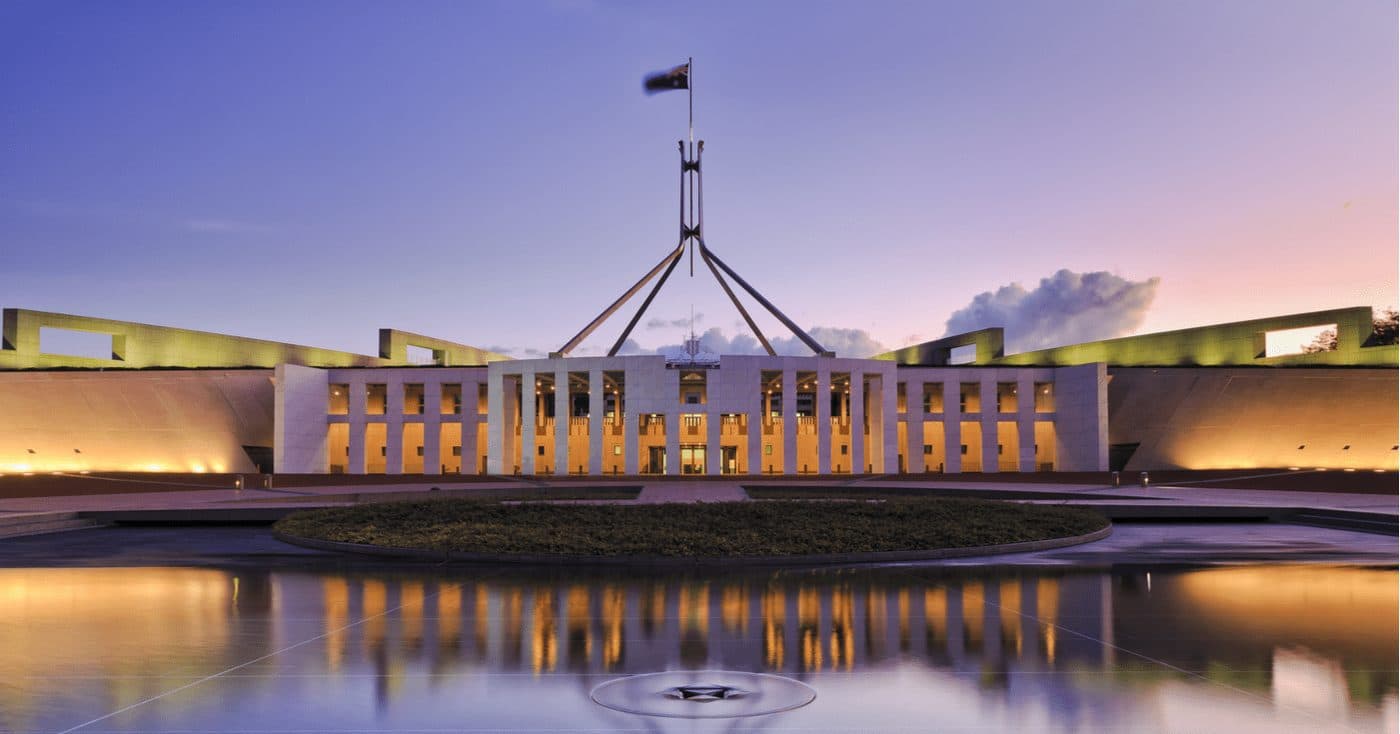Australian Regulator Asks Banks To ‘Proceed With Care’ Over Crypto
ARPA said it will issue a letter detailing its expectations for how digital assets should be handled

Australian Parliament in Canberra | Source: Shutterstock
- Australian Prudential Regulation Authority chair Wayne Byres said his agency wants to provide institutions with “more clarity” on crypto regulation
- The letter is not expected to introduce new regulatory requirements, the chair said
A major Australian financial regulator said Thursday it was in the final stages of issuing a letter to financial institutions that set out its expectations for how digital assets in the country should be handled.
In a speech to the American Chamber of Commerce, Australian Prudential Regulation Authority (APRA) chair Wayne Byres said the regulator wants to provide institutions, including banks and retirement funds, with “more clarity” relating to crypto and financial regulation.
APRA’s letter follows the UK’s lead in issuing a statement detailing how digital assets, such as bitcoin, stablecoins and non-fungible tokens (NFTs), could pose a risk to financial stability, he said.
“Much like our approach to climate risk, [the letter’s] underlying message is primarily one of: ‘by all means innovate, but proceed with care and in full knowledge of the risks’,” Byres said.
Byres’ speech also follows a recent announcement by the Australian government to introduce legislation that seeks licensing and custody measures for the country’s burgeoning digital asset industry. The government is also considering changes to the way the nascent asset class is taxed.
The letter will not introduce new regulatory requirements, Byres said. The message from the regulator comes at a time when financial institutions have been exploring ways to offer crypto to their customers.
Last month, Sophie Gilder, managing director of blockchain and digital assets at one of Australia’s top banks by assets, Commonwealth Bank, said her institution’s experience with crypto had been “overwhelmingly positive.”
CBA announced back in November it would be launching its crypto pilot program, granting select customers the ability to buy, sell and hold digital assets directly through the bank’s CommBank app.
After launching in December, the bank became the first of its kind in Australia to offer crypto products directly to its customers. APRA is now concerned that could entice other regulated institutions to follow the bank’s lead by offering those products.
In a further sign of the uncertainty for crypto presented by the country’s regulators, the Australian Securities and Investments Commission — another major watchdog — is causing headaches for CommBank.
Legal discussions are reportedly delaying the rollout of the bank’s offering to customers which centers on the wording of its product disclosure statement, the Australian Financial Review reported Tuesday.
While the chair recognized his agency’s role as having a mandate on promoting financial stability within the country, that mandate did not translate to restricting innovation “with a view of preserving the status quo.”
“If technology can deliver a financial system that is indeed better, safer and more efficient, our task is to embrace the changes for the benefit of the Australian community,” he said.
Get the news in your inbox. Explore Blockworks newsletters:
- The Breakdown: Decoding crypto and the markets. Daily.
- 0xResearch: Alpha in your inbox. Think like an analyst.






